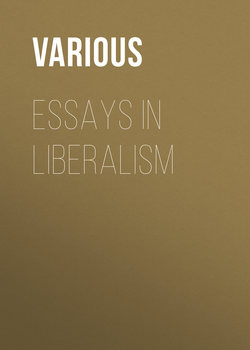Читать книгу Essays in Liberalism - Various - Страница 2
THE LEAGUE OF NATIONS AND THE REHABILITATION OF EUROPE
By the Rt. Hon. Lord Robert Cecil
ОглавлениеK.C., M.P., Assistant Secretary of State for Foreign Affairs, 1918. Minister of Blockade, 1916-1918. Representative of Union of South Africa at Assembly of League of Nations.
Lord Robert Cecil said:—I ought to explain that I am here rather by accident. The speaker who was to have addressed you was my great personal friend, Professor Gilbert Murray, and you have greatly suffered because he is not present. He is prevented by being at Geneva on a matter connected with the League, and he suggested that I might take his place. I was very glad to do so, for, let me say quite frankly, I am ready to advocate the League of Nations before any assembly, certainly not least an assembly of Liberals. But not only an assembly of Liberals—I should be ready to advocate it even before an assembly of “Die-Hards.”
Your chairman has said, and said truly, that the League is not a party question. We welcome, we are anxious for support from every one. We have seen in another great country the very grave danger that may accrue to the cause of the League if it unhappily becomes identified with party politics. We welcome support, yes, I will say even from the Prime Minister; indeed no one will reject the support of the Prime Minister of England for any cause. I am bound to admit when I first read the speech to which reference has already been made, I was a little reminded of the celebrated letter of Dr. Johnson to Lord Chesterfield. Lord Chesterfield only began to recognise the value of Johnson’s works when Johnson had already succeeded, and in one of the bitter phrases Dr. Johnson then used he said, “Is not a patron one who looks with unconcern on a man struggling for life in the water, and when he has reached ground incommodes him with help?” That was a passing phase in my mind, and I am a little ashamed of it, because, after all, we cannot say the League has reached ground as yet. We need and are grateful for the help of any one who will genuinely come to its assistance. I hope we may look not only for words, but for deeds. The League needs all the support it can get in the very perilous and menacing times which are before us. I was glad to note that the Government has announced—it is one of the great test questions—that not only is it in favour of the entry of Germany into the League, but it would support the election of Germany to the Council of the League. That is an earnest of what we trust may be a real League policy from the Government of this country. And yet, though I have thought it right to emphasise the non-party aspect of this question, I am conscious, and I am sure all of you are, there are two ways in which the League is regarded. It is not only that, as your chairman would say, some people have more faith than others, but there is really a distinct attitude of mind adopted by some supporters of the League from that adopted by others.
